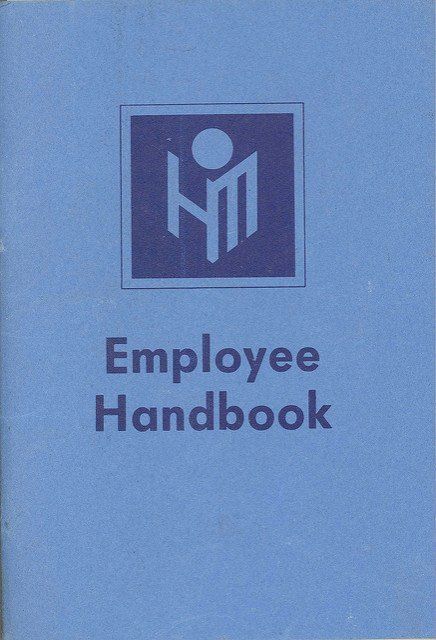At the centre of every thriving business is a dynamic and well-greased HR department. And thanks to changes in the modern economy, the HR department is more important than ever. Never before have people been more important or more integral to business success. It’s people, not capital, that is now the driving force behind most modern companies and what makes them valuable.
Managing those people, however, is getting harder. Members of your team have higher expectations than they did in the past and they want companies not only to pay them but provide them with an additional level of service, including things like training. Recruitment is also getting more difficult, thanks to the fact that job roles are becoming increasingly specialised and niche.
Here we’re going to look at some of the biggest HR nightmares you face as a modern employer, and how to fix them.
Low Productivity
Keeping up with your competitors is a top priority for your business. But that’s hard to do if you have to employ twice the labour to get the same job done. It’s the job of the human resources team to make sure that productivity remains high and that the entire business is operating efficiently.
If your productivity is low compared to other companies in your industry, it’s not because you’re unlucky; it’s because you’re doing something wrong. The first thing to do is a Time and Motion study to find out exactly what is going wrong in your processes. Often HR consultancy services can help on this matter since they have experience with where businesses most often make mistakes.
Once the data are gathered, the next stage is to start comparing performance over time. Often you’ll be able to correlate events in your business, like a change in offices, with drops or peaks in performance levels. Knowing when productivity was high and what conditions led to higher output per person helps you to recreate those conditions and get more out of your workforce in the future.
Failing To Adequately Train Employees
As we discussed in the introduction, employee expectations of the workplace are changing fast. In the past, it was perfectly acceptable for companies to offer workers a wage in exchange for their labour. But now companies have to do a lot more to attract the best talent.
Employees don’t just want to be paid today; they want to be trained for the future. Today’s modern workforce has aspirations, and if they feel that your organisation is holding them back, they’ll leave.
The good news is that putting training in place is actually relatively easy in most industries. That’s because there are already other companies in the sector with links to training organisations. Often it’s just a case of finding out who the trainers are and what courses are being offered by your competitors.
In some workplaces, there’s a need to provide employee training for compliance reasons. It’s a good idea, therefore, for companies to keep a record of employee training so that they can track which members of staff have been on which training programme. Maintain records both when training is performed in-house, as well as when it is given by an outside organisation.
Expensive Recruitment
The statistics on the cost of recruitment are shocking. For high-level positions, the cost of finding the right person can actually exceed the cost of hiring them in the first year. As a result, businesses are keen to keep costs as low as possible when it comes to recruiting.
The responsibility for this falls on HR departments, but getting recruitment right is difficult. Often there’s a lot of paperwork involved, as well as a bunch of other issues, like where to advertise. Most businesses use some type of HR recruiting software. This gives them the ability to process dozens of applications and CVs, as well as store candidate’s’ personal details. The good thing about these applications is that they allow you to keep in contact with people who are interested in working for your organisation for years to come. Perhaps there isn’t a position available that matches their skills today, but in the future, once you’ve expanded, there might be a chance for you to review their application and contact them in the future. Again, this helps to keep the cost of recruitment down, since you’ve already got a mailing list of people who are willing to work with your organisation.
Poor Disciplinary Processes
The least popular topic in any HR department is how to deal with employees who haven’t been behaving themselves. Companies with bad disciplinary policies make worker misbehaviour into a personal issue, with managers getting into shouting matches with employees.
It’s the job of the HR department to be as objective as possible and stay on the right side of the law. Doing this is easier said than done, of course, but most employers manage it by having their disciplinary policies written down in their company handbook. HR departments need to follow these procedures to the letter and avoid giving problem employees any material that they could take to an employment tribunal.
When disciplinary actions do get underway, it’s critical to keep a record of all correspondence. This means keeping copies of letters sent to employees, minutes of meetings, communications with trade union officials and other activities related to the case. Having a public record of events helps to keep everybody on the same page as the dispute develops.
Just as with recruiting, there is now software that allows HR departments to store and retrieve all relevant documents relating to a disciplinary case. Having these systems in place helps to reduce the legwork for all people involved and the amount of time disciplinary action takes to resolve.
Out-Of-Control Outsourcing
Finally, HR departments are often responsible for outsourcing within the company. The problem is that many outsourcers don’t often fulfil the internal requirements of the company. It’s important, therefore, that HR departments make sure that they undergo the same training, are members of the right industry bodies, and have gone through any necessary induction training.



